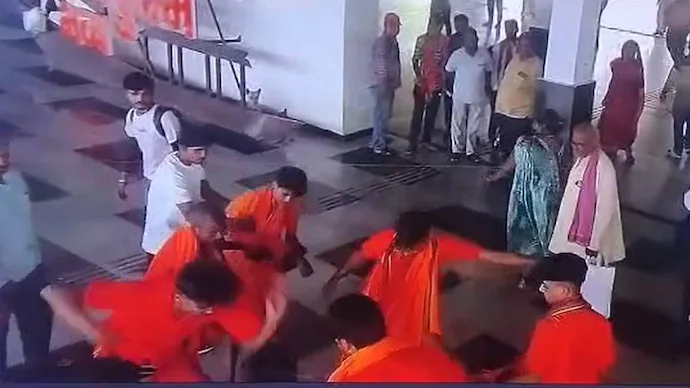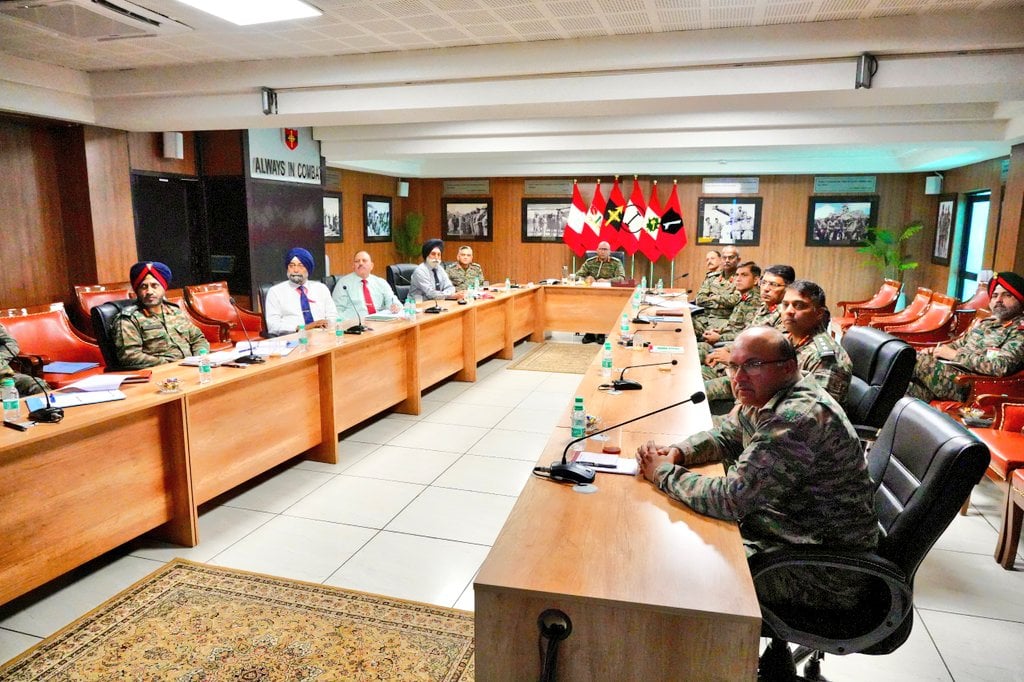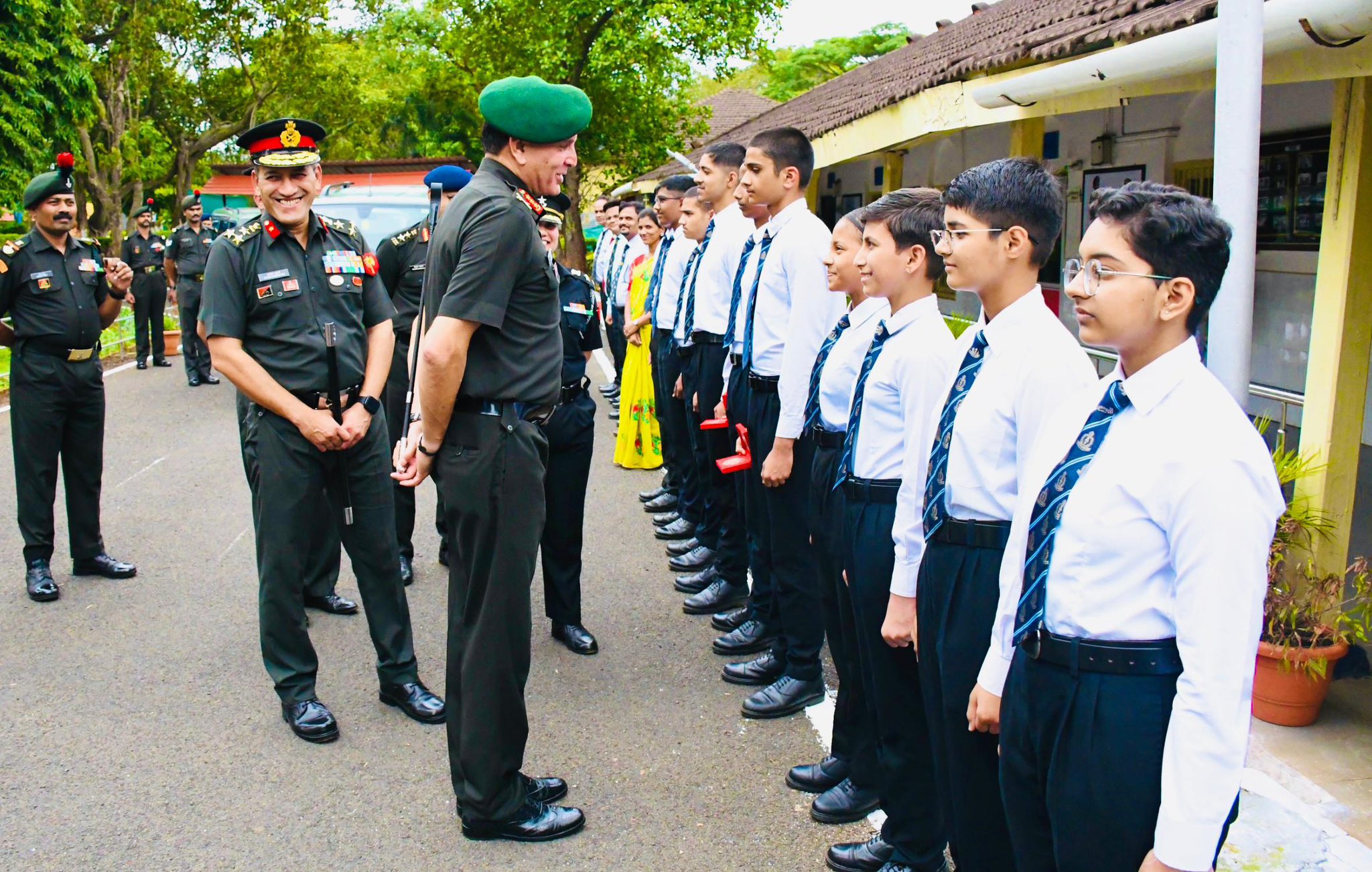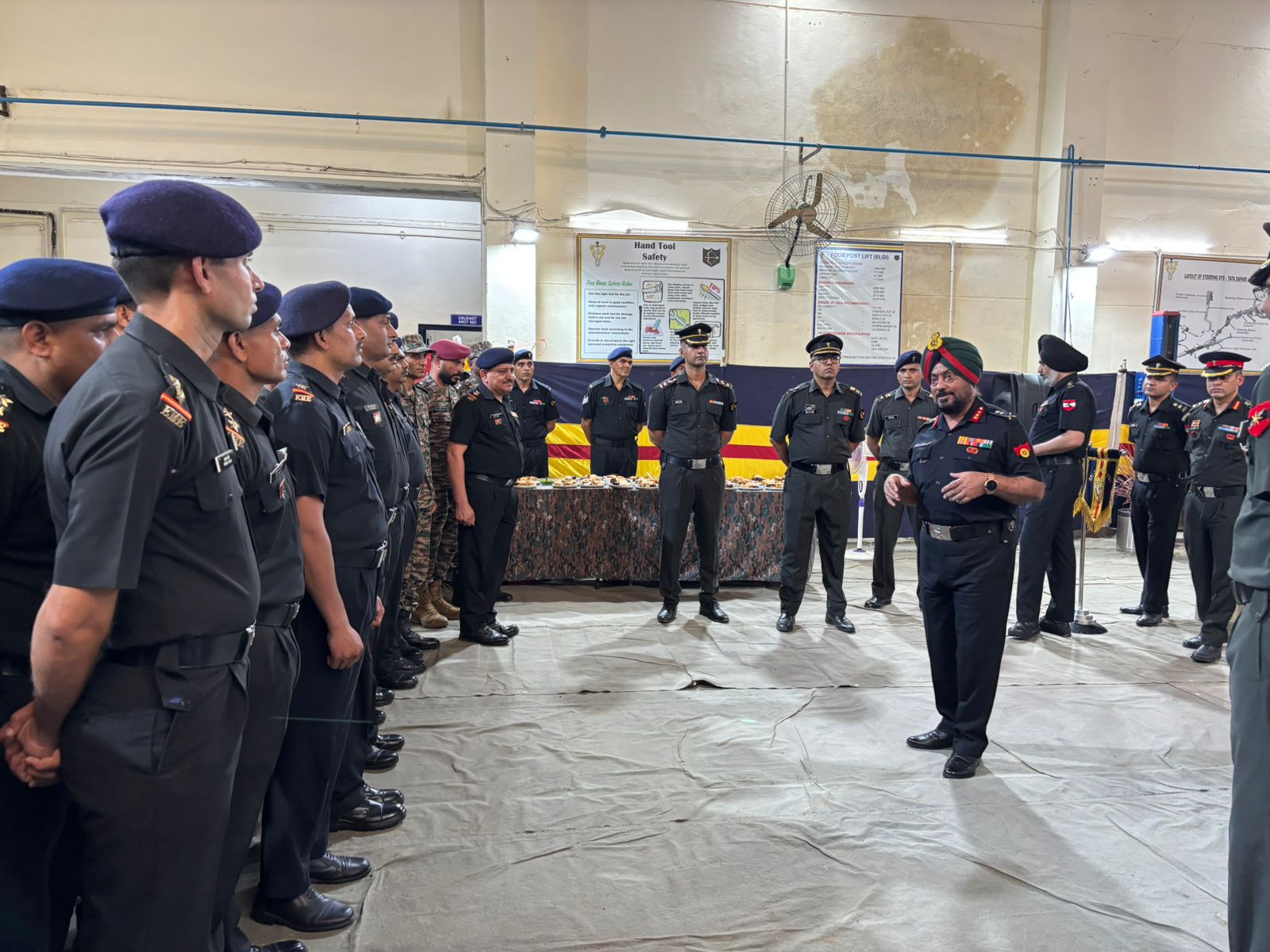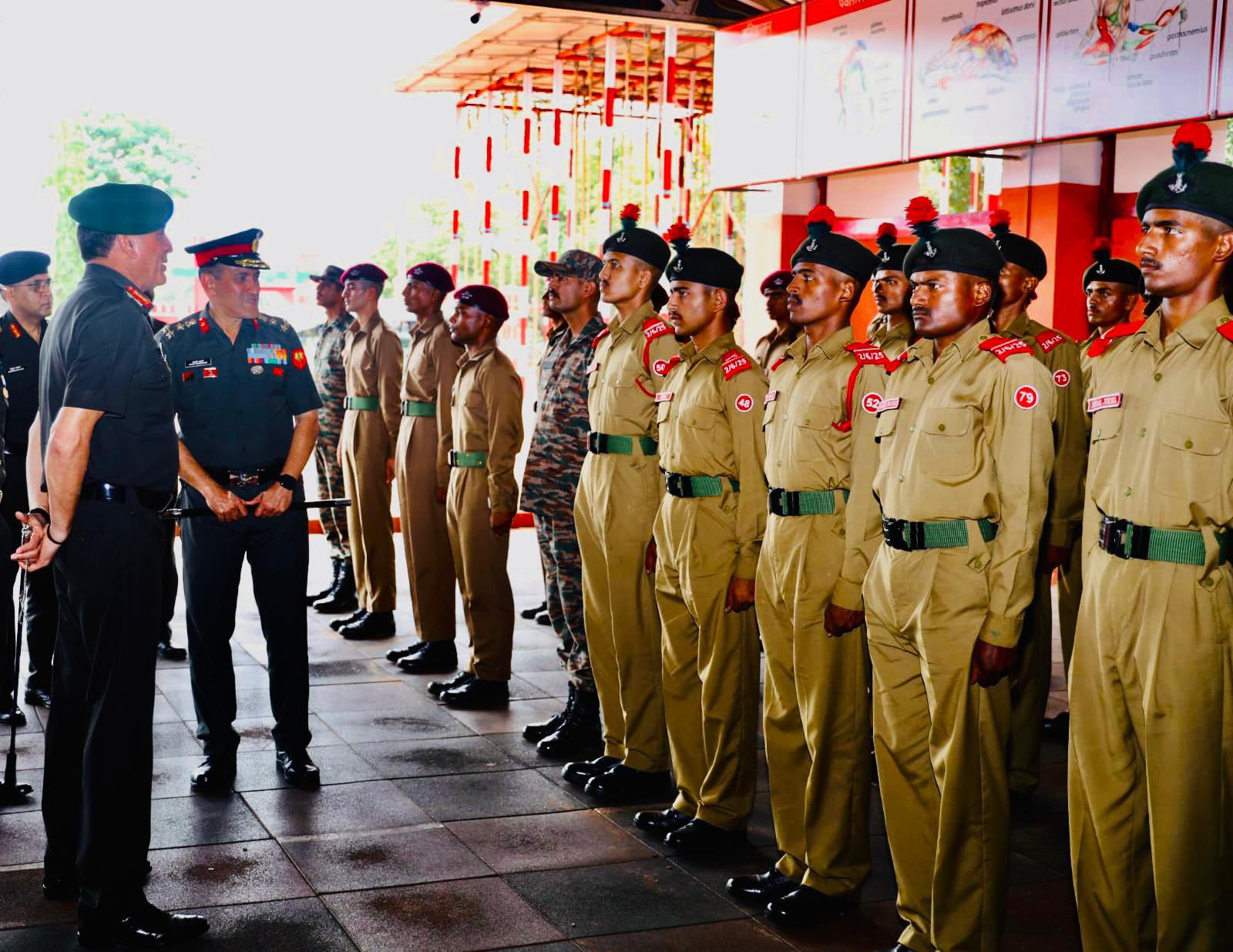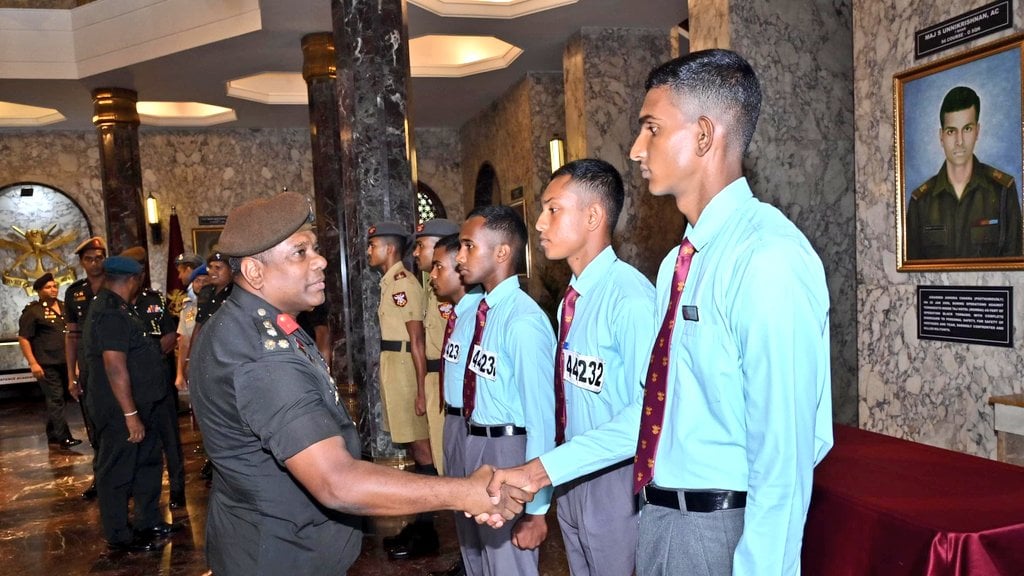Kanwariyas Brutally Assault CRPF Jawan at Mirzapur Railway Station, Bystanders Remain Passive
A Central Reserve Police Force (CRPF) jawan was viciously attacked by a group of Kanwariyas at Mirzapur Railway Station, sparking…
Northern Command Strengthens Veteran Support with High-Level Review Meeting Led by Lt Gen Pratik Sharma
In a strategic push to enhance the welfare of ex-servicemen (ESM), Lieutenant General Pratik Sharma, General Officer Commanding-in-Chief of the…
Lt Gen Dhiraj Seth Visits Rashtriya Military School in Belagavi, Commends Cadet Training and Modern Infrastructure
Lieutenant General Dhiraj Seth, PVSM, AVSM, General Officer Commanding-in-Chief of the Indian Army’s Southern Command, visited Rashtriya Military School (RMS)…
Lt Gen JS Sidana Reviews Tech Innovations at Sapta Shakti Command
Lieutenant General JS Sidana, Director General of Electronics and Mechanical Engineers (DGEME), conducted a key visit to the Indian Army’s…
Lt Gen Dhiraj Seth Reviews Agniveer Training During Visit to Maratha Light Infantry Regimental Centre
Lieutenant General Dhiraj Seth, PVSM, AVSM, General Officer Commanding-in-Chief of the Southern Command, visited the historic Maratha Light Infantry Regimental…
India and Sri Lanka Deepen Defence Ties with Strategic Visit to National Defence Academy
In a notable display of growing military cooperation, a high-level Sri Lankan Army delegation led by Brigadier R T Lokuthotahewa,…

